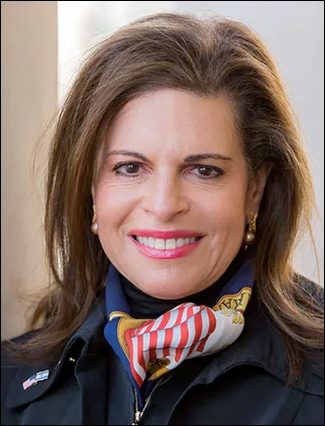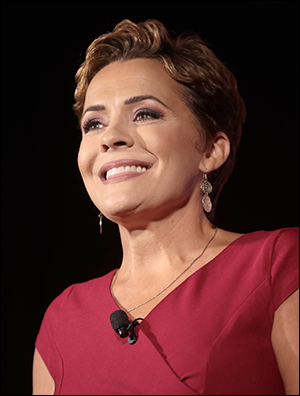By Jim Ellis — August 11, 2022
Senate
Florida: Demings Touting Tied Poll — Rep. Val Demings (D-Orlando) is brandishing a new poll that finds she and Sen. Marco Rubio (R) tied at 45 percent apiece. This is only the second poll of the 10 released this year that does not project the senator as the race leader. The Clarity Campaigns survey (July 26-31) conducted an online survey of 2,244 registered voters from a pre-selected panel. Since 2016, pollsters have typically underestimated Republican strength in Florida, so it is reasonable to add a couple of percentage points for the Republican candidate in a typical Sunshine State poll.
Ohio: Heavy Campaign Spending Keeps Rep. Ryan in Lead — Riding a major campaign spending wave, thus taking advantage of his abundant campaign war chest, US Rep. Tim Ryan (D-Warren/Youngstown) again sees a developing lead in his race against Republican nominee and author J.D. Vance. The just released Impact Research survey (July 21-28; 800 likely Ohio general election voters) projects Ryan as holding a 48-45 percent edge in the race for the open Ohio Senate seat. Last month, the same firm also found Ryan holding an almost identical lead at 48-45 percent.
The Ryan campaign has spent over $6.5 million on the airwaves since the end of May according to the Politico news publication, with virtually no counter media push from the Vance forces. Though Rep. Ryan has had the field virtually to himself in the early going, he still does not expand beyond the polling margin of error. When Vance does counter, we are likely to see a Republican rebound here.
House
WA-3: Rep. Hererra Beutler Now Behind — New results from the laborious Washington ballot counting process have put Trump-endorsed former retired Army officer Joe Kent (R) ahead of six-term incumbent Rep. Jaime Herrera Beutler (R-Battle Ground/ Vancouver) by 960 votes with still several thousand ballots left to count. Officials report that it may be as long as Aug. 16 before the totals are finalized.Since the bulk of the outstanding ballots are from Thurston County, an entity where Kent placed first, some analysts are declaring that Rep. Herrera Beutler will not be able to rebound. At this point, Democrat Marie Glusenkamp Perez places first and will advance to the general election presumably to face Kent.
If this trend holds and Herrera Beutler is defeated, it will mean that 11 House incumbents will have already lost their seats in the 2022 election cycle, and 68 seats will be open in the general election. Republican prospects to hold the 3rd District are strong despite the incumbent losing and a Democrat placing first in the jungle primary, however. A total of 64.8 percent of the more than 208,000 primary voters at this point voted for a Republican candidate.
Governor
Oklahoma Poll: Governor’s Race Closer Than Expected — The Democratic online polling firm Change Research released their latest Oklahoma Governor’s survey (July 22-26; 2,079 likely Oklahoma general election voters; online) and sees Gov. Kevin Stitt (R) in a tighter battle than expected against Oklahoma Superintendent of Public Instruction Joy Hofmeister (D). The ballot test projects the governor to be holding only a 42-34 percent advantage.
The main reason for Stitt’s downturn apparently relates to his falling job approval rating. According to the Change numbers, the governor’s favorability index has slid to 42:56 percent favorable to unfavorable. It is probable, however, that the governor will be able to rebound and score a convincing win in November. It is difficult to predict a deep red state like Oklahoma going Democratic in what appears to be at least a relatively strong Republican election year.







